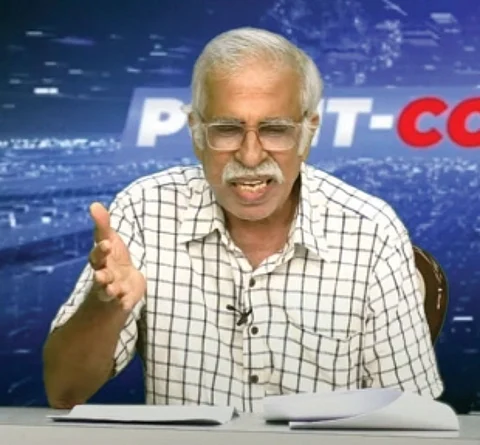

PANJIM: Reacting to Chief Minister Pramod Sawant asking for 40 villages to be struck off the list of notified villages under Eco-Sensitive Areas, environmentalist Claude Alvares has asked: “Why is the chief minister deciding the fate of 40 villages?”
Alvares, the Director of Goa Foundation and a petitioner in the successful PIL for the notification of the Mhadei Tiger Reserve was a panellist on the weekly discussion show Point Counter Point on Herald TV, on the topic “Are politicians signing Goa’s ecological death warrant?”
“The Chief Minister’s recent statement that out of 99 villages, 40 should be excluded from the list of ESA villages, in the draft notification. Why does he continue to decide the fate of 40 villages? Why can’t the village bodies decide that? The panchayat is a part of the State under Article 21 of the constitution. We have Central, State and local self-government. Panchayats should decide if they want to be a part of the ESA or not. Why is the Chief minister deciding that 40 panchayats should not be a part of the Eco-sensitive areas defined by the Kasturirangan Committee? (on the protection of the fragile Western Ghats).
“There is so much money involved that there is no way the government is going to listen to ordinary villagers anymore. Opposition to the notification of ESA, (which will actually protect each village) is being manufactured. And this opposition will be used by politicians and the Central government to say there is no need for the notification of Eco-Sensitive Areas,” Alvares added.
Ravindra Velip, the Vice President of the GAKUVED Federation, fighting for tribal rights said, “No attempts have been made to identify the community forests rights of these villages. Most of the villages come under mining areas”. Velip strongly agreed that if villages are in eco-sensitive zones, tribal rights and their relationship with forests will only strengthen, not weaken.
He also advocated that gram sabhas should be at the centre of decision-making and training should be imparted to gram sabha members. “Planning and decision-making should be given to the gram sabhas. Prior to that proper awareness should be made. the Tribal Welfare department should also be a part of the process. All acts of environmental protection need to be guarded and implemented by the panchayats and local bodies. The village plan has to be made by the panchayats and followed,” Velip said.
The Tribal leader also said, “People who are opposing Eco-Sensitive Areas need to go through the draft notification on ESAs. People are being threatened that power will be given to the forest department. And this is because the forest department has failed to get the trust of the communities.”
Meanwhile, columnist and a veteran of the panchayat and other people’s movements, Soter D’Souza was blunt, “You cannot reason with drug addicts and alcoholics. Here you are dealing with power addicts and money addicts. They don’t understand unless they learn it the hard way. That fear is not there in Goa. The arrogance of certain ministers is shocking. People don’t matter. Who are you they ask? We elect them.”
(Watch the full discussion by scanning the QR code with this story or on the Herald TV YouTube and Facebook channels)